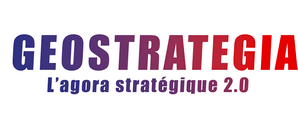La menace posée à l’Europe par la Russie taraude de façon croissante les chancelleries et les débats publics sur le continent, sur fond d’une réassurance américaine chancelante. L’auteur du présent papier propose quatre moyens à privilégier, piliers à forger ou voies à suivre, sans délai, pour que l’Europe puisse présenter un front uni et renforcé face à Moscou.
Les opinions exprimées dans cet article n'engagent pas le CNAM.
Les références originales de cet article sont : Nicu Popescu, « The four pillars of European defence », ECFR, European Power. Ce texte, ainsi que d’autres publications, peuvent être consultés sur le site de l’ECFR.
For too long, Europeans have neglected their defence infrastructure. With the threat of Russia looming, policymakers should consider four ways to present a strong, unified front.
In a time long before Donald Trump, Jean Monnet said that it is better to have ten thousand tanks too many than one too few.
For the French politician and founding father of the EU, this is what it took to win the second world war and create the space for institutions which gradually developed into the EU of today. Its benefits include peace, high standards of living, strong infrastructure, the borderless Schengen area—and many other things which Europeans take for granted.
But these benefits now need protection, not least by the military. For too long, Europe has neglected its own defence. As America folds up its security umbrella, European policymakers should consider how to present a strong, unified front.
The path forward will be steep. Europeans have not taken seriously the dozens of wake-up calls from Russia: its invasion of Georgia in 2008; its invasion of Ukraine in 2014; its frequent failure to respect basic commitments under international law or from the 1994 Budapest Memorandum; the 1999 Istanbul commitments; and many others.
Even after Russia’s all-out invasion of Ukraine in February 2022, most European countries did not treat the aggression as something that transcends Ukraine to threaten the EU itself. As a result, policymakers have yet not proceeded with the necessary military upgrades with sufficient urgency and at the correct scale.
They must now follow the four key pillars, all of which are crucial to rebuilding the structures which keep most of Europe at peace.
Ukraine’s defence, Europe’s safety
First, Europe needs to help Ukraine achieve a type of peace that is neither capitulation nor a break that leads to another war. For the past three years, Europe has spoken of “helping” Ukraine; but has taken too lightly the threat posed by Russia to EU and NATO member states.
Europe can more easily and cheaply secure its own safety by helping Ukraine, rather than seeing the country overwhelmed by the Russian army and American indifference. That means significant funding to purchase military equipment from wherever possible in the short term, in order to bolster Ukraine’s resistance and defence capabilities. The EU also needs to focus on developing its own industrial base.
Increase defence spending
Second, Europeans need to dramatically increase defence spending and overhaul Europe’s security and defence infrastructure. Since February 2022, multiple announcements have proclaimed the need for Europe to take security seriously, with a clear trend towards increased spending commitments. But while Ukraine complained of munitions hunger and European warehouse depleted, some companies still had unused spare production capacities—and insufficient orders.
A Czech initiative to buy artillery shells for Ukraine did not raise enough funds. Bold statements have led to increased spending, but nowhere near to the level that would enable Ukraine to stop the Russian advance or allow most EU countries to replenish their stocks while supporting Ukraine’s war effort.
According to a recent European Court of Auditors report, the EU’s military mobility financing programme has a funding gap of four years until the next EU multi-annual financial framework. Budgets and financial commitments show that using the NextGeneration Europe loan of $800bn to overcome the effects of covid-19 was a much bigger priority for most Europeans (public, parliamentarians and executives) than preparing Europe for military risks.
Time is running out
Third, Europeans need to get things done faster. Europe has not one decade, let alone two, to build up its capacity to ensure European peace; but it is hamstrung by the standard speed of European public administration.
Europeans have been too slow to take their own security seriously. Its leaders mostly opt for small increases in defence spending rather than the bold investments necessary. For all the visible increase in defence spending in the last three years, as a share of GDP European members of NATO spent less in 2024 than in 1999 (2.02% GDP compared to 2.1% GDP average). Russian aggression against Ukraine might have gently woken up some Europeans; but it did not galvanise a quick and ambitious defence build-up capable of changing the military course of the war in Ukraine in 2024 or 2025.
The urgency extends beyond military hardware, however. Europe must also invest in critical non-military infrastructure—including securing Europe’s energy security via faster transitions to renewable energy and faster development of nuclear electricity generation, telecommunication and transport networks—to secure the continent’s resilience in other domains subject to pressure, hybrid attacks and sabotage.
To speed up this process, the EU should take inspiration from the US and develop its own European Defence Production Act, allowing Europe to accelerate defence and non-defence spending during crises. The US government has variably used this law to boost research and production of hypersonic missiles; fund the reconcentration of military industries to protect them from nuclear attack; and accelerate the mining of minerals like lithium and cobalt to boost energy transitions and supply chains.
Securing public support
The fourth pillar is perhaps the most difficult, yet most important: securing public support for the above measures. European leaders have long neglected the importance of hard military defence, assuming that peace would persist indefinitely. After decades of relative stability and “peace dividends”, many Europeans have lost sight of the need for robust defence policies. Public understanding of security issues has eroded; policymakers need to be honest about the risks Europe faces.
From now on, the best-case scenario is that Europeans ensure Europe’s security with less America; in the worst case, Europeans will need to ensure their security with no America at all. Whatever the outcome, Europe needs to invest to fundamentally secure and revamp the foundations of European peace.
Par : Nicu POPESCU
Source : European Council on Foreign Relations





































